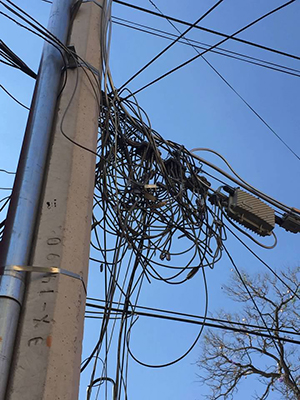Get Help
What to do if you can’t afford your utility bill – and what to do if you want to stop buying electricity from your electric distribution utility
Being able to pay your electric, natural gas, or other fuel bill can be challenging even in the best of times. But you have the right to obtain help, from programs we all pay for via our utility charges and federal taxes. The links on this page can help you determine whether you are eligible for the available assistance programs. We also offer some helpful advice on choosing an electric supplier.
-
Electric Assistance Program – provides eligible customers with a discount of up to 76 percent on electric bills. Funded via the System Benefits Charge on your electric bill.
-
Gas Assistance Program – provides a discount of 45 percent to eligible natural gas customers of Liberty and Unitil. Funded via the LDAC charge on your natural gas bill.
-
Lifeline – provides customers with up to $9.25 a month off the cost of telephone, internet, or bundled phone/internet services. Funded via the universal service charge on internet and phone bills and subject to regulation by the Federal Communications Commission. (Unfortunately, internet services are not subject to regulation at the state level.)
-
Fuel Assistance Program – This is the New Hampshire version of the federally funded LIHEAP (Low Income Home Energy Assistance Program).
-
Weatherization Assistance Program – This is a federally funded program administered by the New Hampshire Department of Energy that provides help with making the homes of low-income customers more energy efficient. The Weatherization Assistance Program is separate from, but operates in conjunction with, the Home Energy Assistance program available to low-income customers available via the ratepayer-funded NHSaves programs.
-
Home Energy Assistance Program – covers 100 percent of the cost of weatherizing the homes of eligible customers, regardless of whether they rent or own the property. Paid for by ratepayers via the System Benefits Charge on electric bills and the LDAC charge on natural gas bills, the program is part of NHSaves.
-
Eversource Residential Arrearage Management Program – If you receive electric service from Eversource, you may be eligible to have part of your past-due balance forgiven. The cost of the program is included in the charges Eversource recovers from all of its New Hampshire customers. Unfortunately, arrearage management programs are not available for other New Hampshire utilities. The Public Utilities Commission rejected Unitil's proposed arrearage management program for its electric customers in 2022.
-
New Hampshire Housing has an Emergency Rental Assistance Program that in some circumstances can help with utililty bills as well as rent. Likewise, New Hampshire Housing's Homeowners Assistance Fund can in some circumstances help homeowners pay their utility bills.
-
Neighbor Helping Neighbor is a utility-sponsored independent nonprofit that may provide additional assistance for overdue utility bills. Referrals and eligibility determinations are made by the Community Action Agencies.
The Office of the Consumer Advocate is acutely aware of how challenging it is for New Hampshire residents to live in poverty. In addition to the specific programs linked above, the state's five Community Action Agencies are an important resource, as is New Hampshire Legal Assistance, Listen Community Services, and 211 New Hampshire.
Choosing an Electric Supplier
If you are an electric customer of Eversource, Liberty, or Unitil – or if you are a member of the New Hampshire Electric Cooperative – you have the right to choose a competitive electric provider instead of taking the default energy service provided by the utility.
The website of the Public Utilities Commission has comprehensive information about how to switch from your utility's default service to a competitive electric supplier. You can also use this information to switch between competitive electric suppliers – and residential customers can even switch back to their utility's default energy service. The alternatives to default energy service varies depending on which utility serves you.
The Office of the Consumer Advocate believes that many residential ratepayers can save money by shopping for, and switching to, a competitive energy supplier. But we urge consumers to exercise caution and care. Competitive energy suppliers are for-profit businesses but, unlike the utilities, their rates are not regulated. If you are considering a plan offered by a competitive energy supplier, be sure to check out how long the rate is effective for and whether you will incur a penalty for switching to a different supplier before the end of the rate period. Mark your calendar with the end of any rate period you sign up for, and review available plans prior to that date. If you do nothing at the end of the rate period, your supplier will automatically sign you up for a new rate plan – one that may not be as desirable as the one you signed up for in the first place!
In addition, you should find out whether your city or town has a community power aggregation plan. Under such a plan, the municipality becomes the buying agent for the electricity customers within its borders unless they affirmatively opt out of the plan. The idea is that by purchasing electricity at wholesale for the whole community (or at least most of it), cities and towns will use that collective buying power to save consumers money. Some cities and towns may use their aggregation programs as the centerpiece of a suite of energy initiatives, and/or work in coalition with other municipalities so as to make the collective buying power even more potent!




